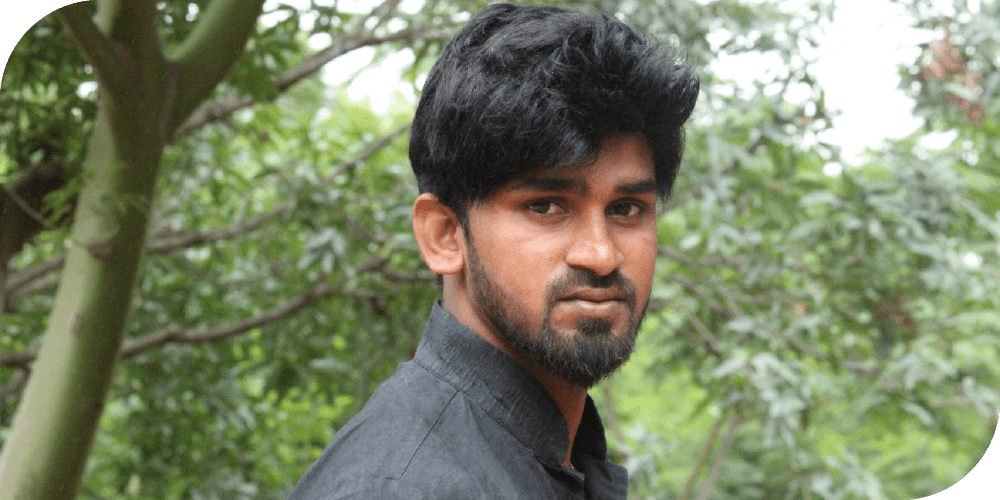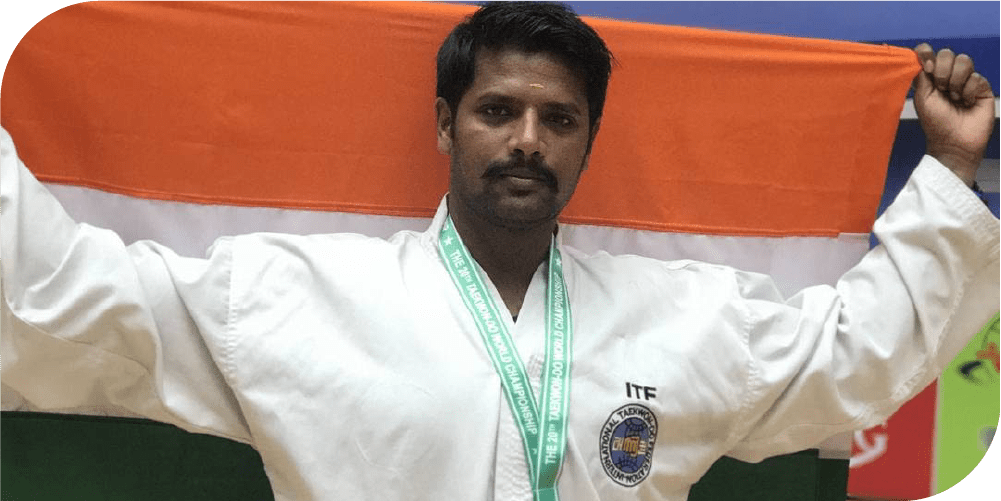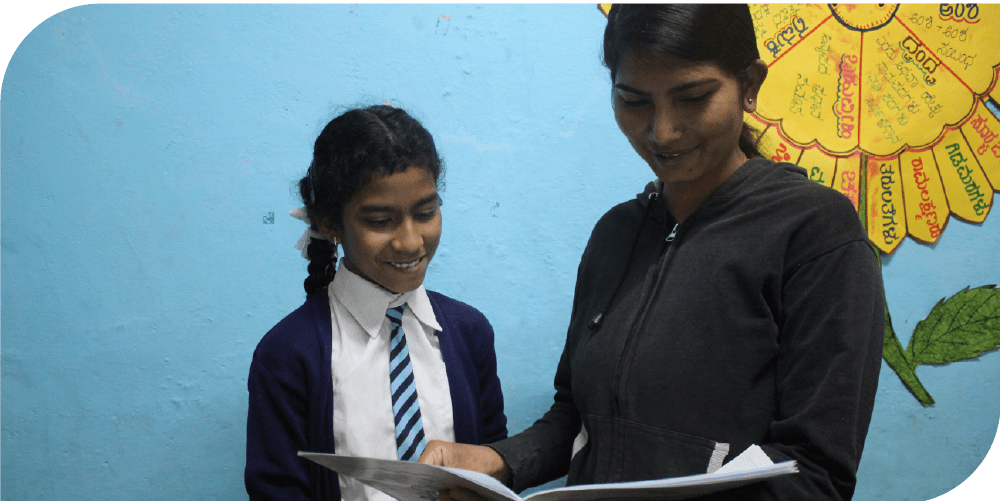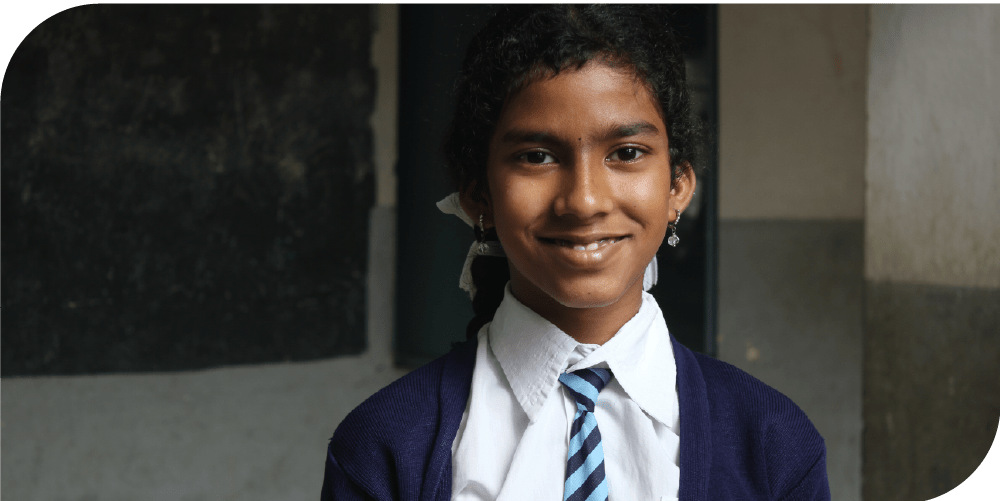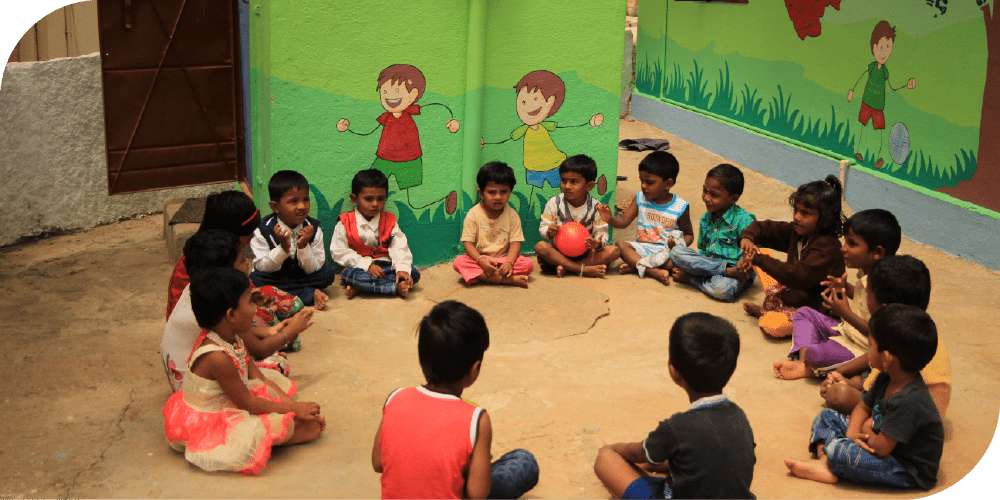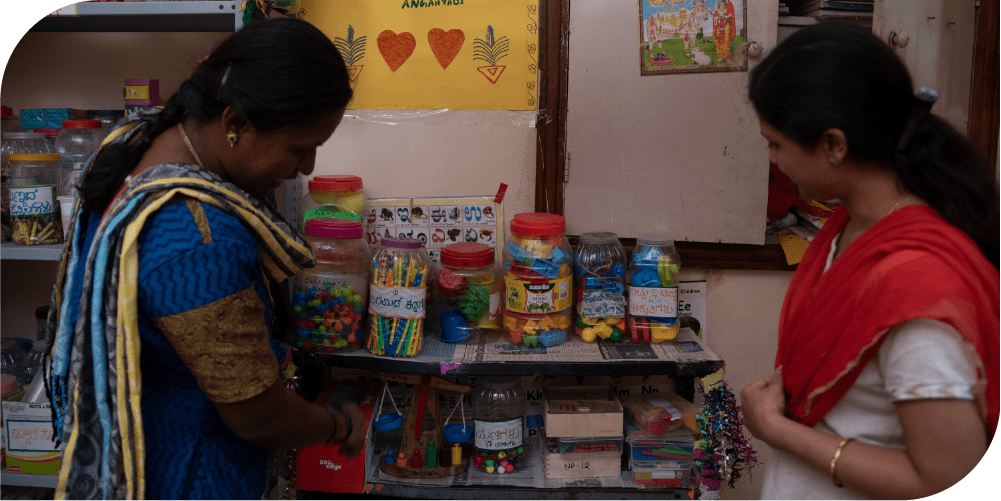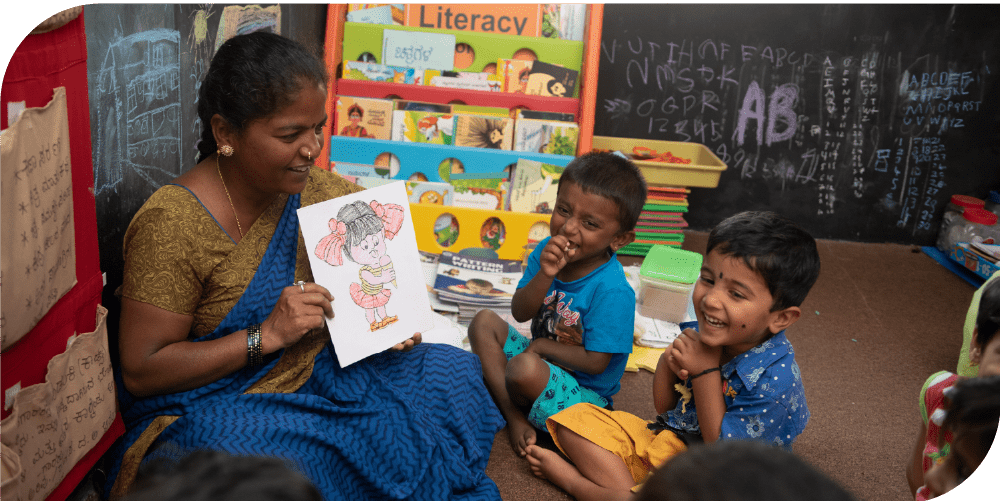Hi, my name is Nikhil Vasuki, and I manage communications at Makkala Jagriti. This account is a story of how Makkala Jagriti’s story and my story met.
The first 15 years of my career have been widely varied. My ties with the corporate world began in finance, moving on to the world of defence contracting. This exposed me to so much geography: Arabia, Europe, the Americas, and Central Asia.
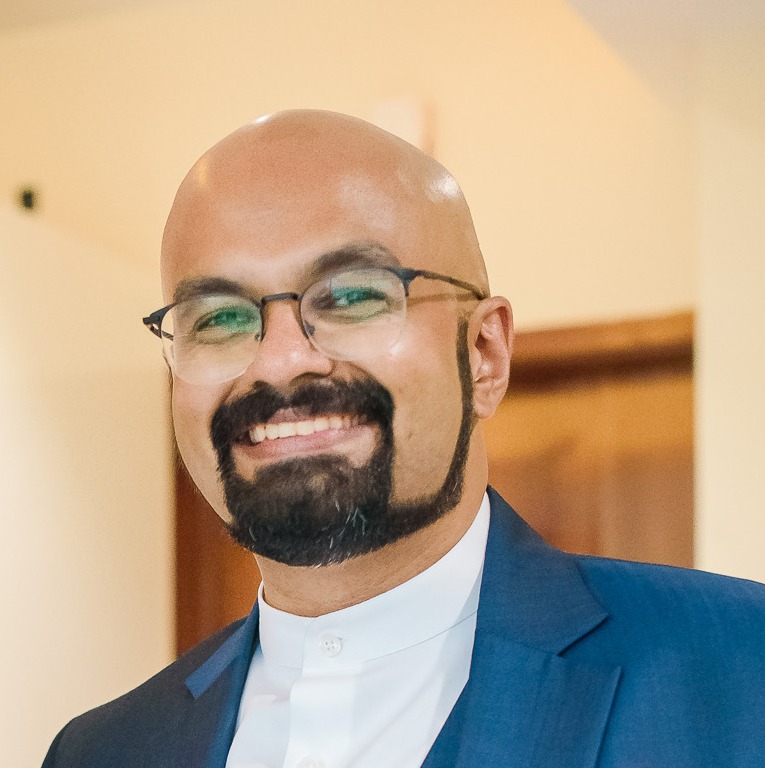
When I moved to India in 2014, I started my stint in news media. In the field, I got a more nuanced understanding of the socio-economic situation of the people of India, especially the people of Karnataka. As much as administrations are doing their best to bridge the gap between the rural and the urban, it does take time. To identify areas that need extra support needs many more boots on the ground than are currently available. One major area where I saw a large rural-urban disparity was education. From pre-school to tertiary education, there were stark differences in what children and youth were exposed to. With the fraction of rural children and youth who transitioned into an urban setting for further studies and employment, a significant barrier was that of language, i.e. English. With minimal exposure to the language, this would often lead to difficulties in maintaining confidence. Consequently, any opportunity for tertiary education and post-university employment would swing in favour of the urban student.
With these thoughts was born a dream to find a way to bridge and eventually eliminate this gap. I ran through many ideas in my mind, a physical centre that provides bridge courses, a mobile centre that goes from district to district, taluk to taluk, village to village, an app that can provide lessons at a single click, or something as simple as a YouTube channel. Quite overwhelming, as I didn’t have the depth to understand every aspect of making access to education equitable.
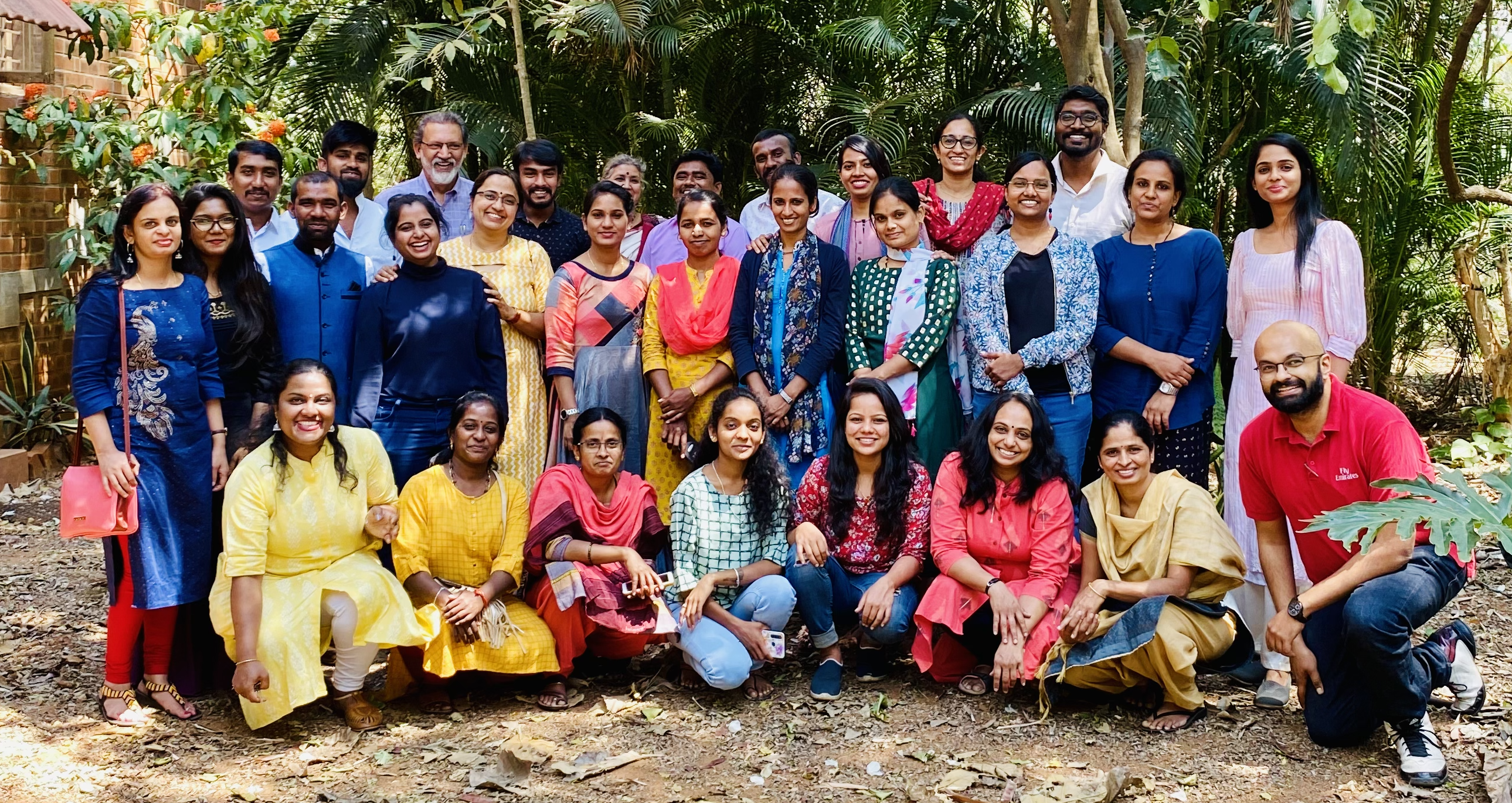
A bit of soul – and internet – searching led me to the Facebook page of this Bangalore NGO called Makkala Jagriti. “Fascinating name,” I thought, “quite telling in what they’re all about.” Makkala Jagriti – the “awakening of children.” The awakening of knowledge, possibilities, opportunities, and success.
The more I explored, the more I got to know how deeply entrenched Makkala Jagriti is in a child’s development. With programs for children under the age of six, primary school children and pre-teens, and high school children and young adults, there is so much time and effort invested in ensuring no child or youth is left behind.
I thought to myself, “Here is an organisation that is already doing so much to bring equity in access to education; it is a good place to learn, contribute and build myself up to fulfil my mission in the development sector.” However, I was still not aware of the full extent of the work done by Makkala Jagriti. The knowledge of their reach dawned upon me when I began having conversations with the team.
Makkala Jagriti institutionalised the S.P.I.C.E. model of holistic development – building on children’s Social, Physical, Intellectual, Creative, and Emotional development. Studies have shown that such a wide spread of interventions is beneficial for a child’s growth into a physically, mentally, and emotionally healthy adult. To see this in active practice at Makkala Jagriti was wonderful for me to see.
When I came on board in January 2021, Makkala Jagriti was well into solving a significant problem that came into existence – learning was interrupted across the country as a result of the COVID-19 pandemic. It took some adjusting from the field team to start managing their facilitations remotely. However, there was one more divide that was created immediately – the digital divide. While most children in an urban setting had access to an electronic device that enabled them to continue learning online, this was not the case, especially in rural areas.
Makkala Jagriti, with the help of the organisation’s supporters, marshaled resources together and put together thoughtfully designed learning kits, stationery and lesson plans to reach children. The assistance included creating area-level WhatsApp groups in which representatives of Makkala Jagriti played a crucial part. Children would complete assignments in the workbook and send their feedback to Makkala Jagriti’s staff through the WhatsApp groups – such a detailed and continuous overview of every child’s work! On top of all of this, teachers and parents would be continually brought up to speed with lesson plans, the best ways to teach and guide, and to make the overall experience enriching and fun at the same time.
Furthermore, the Bangalore NGO’s work did not restrict itself to academics. These were trying times, and ensuring everyone’s mental health – staff, children, parents, and teachers – became a top priority. The organisation brought sessions in yoga, counseling, and talking circles – facilitated by experts in the field – to check in on and ensure all these stakeholders were aware of safe spaces available for them to let their hair down and use them as frequently as they need them.
What humbled me further was Makkala Jagriti’s efforts in ensuring food security within the communities where they work. Residents of these largely marginalised communities were daily wage labourers, and with work hard to come by because of the pandemic, money to put food on the table was scant. Makkala Jagriti’s team identified the communities needing help, mobilised relationships with food vendors and community leaders, and distributed dry ration kits to the families. The organisation has served nearly 15,000 families this way.
With all the beautiful things that Makkala Jagriti does for society, I am often asked what makes it the best NGO for children… why do I enjoy working here? My answer would immediately point to the people with whom I work – a selfless bunch of folks on a mission to serve, build up and springboard children and youth to a soaring journey of success, with values instilled in them to pay it forward.

